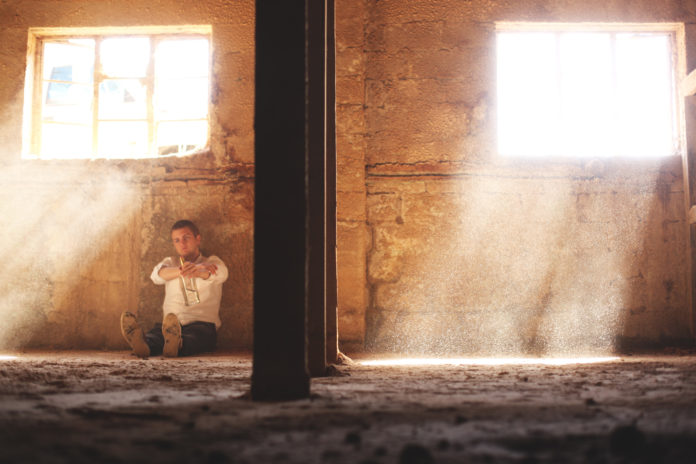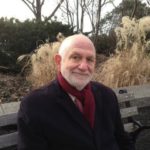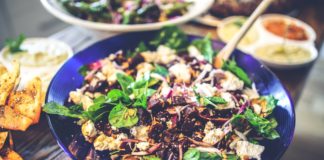I can’t bear when people label themselves “alcoholics,” “addicts” or “in recovery.” I view it as a way of denying that you are human. And to teach your child that…
Influence contributor Meghan Ralston wrote a marvelous piece entitled, “I’m Breaking Up With the Word ‘Addict’ and I Hope You’ll Do the Same.” (Meghan recently debated this topic on The Influence with Johann Hari.) In her 2014 article, she wrote:
Even in a chaotic stage of drug use, we are not “other.” We are women, we are someone’s daughter, we continue to laugh, we continue to like jazz and cheeseburgers and comfy pajamas. We cry, we get so lonely, we hate sitting in traffic. Addiction can be wretched, no question, but we do not ever stop being human beings, even during the times in our lives when we are dependent on drugs.
My only quibble comes where Meghan said:
For many people, myself included, the word “addict” is incredibly harmful and offensive. You do not have my permission to call me an addict. You can of course refer to yourself as an addict, if you wish. [Although the title of her piece does express her hope that they would cease doing so.]
I would vehemently encourage them not to. Nothing depresses me more than hearing a person label themselves an addict, to set themselves off from humanity by highlighting their most self-destructive trait—or, usually more accurately, their worst period of life.
All of these issues arose during a discussion I had last week as a guest on the Talk Recovery radio network. Their website described our segment this way (though they later changed the description to something more complimentary):
Dr. Stanton Peele was today’s thought provoking live guest on Talk Recovery.… our show is meant to be a platform where all pathways to recovery are welcomed to be discussed… But today, that almost didn’t happen. There was an “us and them” feel to the show… Why do people feel the word addict is stigmatizing?
The male host talked proudly of the recovery movement to which he belongs.
We are confronted everywhere by signs of this universal movement—in public policies, celebrities’ confessionals, treatment circles and, today, throughout our culture. Epitomizing this phenomenon is The Anonymous People, a 2013 documentary film congratulating “the over 23 million Americans living in long-term recovery from addiction to alcohol and other drugs.”
We now strive to recruit children as early as possible into this movement, through recovery high schools and recovery dorms. Teenagers and young adults ghettoizing themselves—it is hoped, apparently, their entire lives!
The male Talk Recovery host said he can’t imagine why people stigmatize “addicts.”
How ironic! Self-stigmatizing is, for me, the far worse harm. Who cares what others think—you’re always with yourself. A long line of literature, tracing back to the 1970s and 1980s, by Alan Marlatt (1), Nick Heather (2), and Jim Orford (3), shows that thinking of yourself as an alcoholic causes you to behave the way you think alcoholics behave.
As you can see, I’m not celebrating Recovery Nation, where people march in unison, their labels preceding them, in a process I call the “Invasion of the Recovery Body Snatchers.”
As Ilse Thompson and I write in Recover!: An Empowering Program to Help You Stop Thinking Like an Addict and Reclaim Your Life:
You are not your addiction; you are a valuable human being whose qualities endure and exceed your addiction. … It’s impossible to expect a person to achieve wellness by focusing on his or her faults and mistakes. Perhaps this is why conventional recovery asserts that people must remain “in recovery” forever and continue to identify themselves as addicts, no matter how long they are sober.
At the very outset of Talk Recovery program, when the man spoke of North America’s spreading Recovery movement (as represented by their network), I asked, “Do you believe that nearly all of us have periods and areas in our lives where we do poorly, harming ourselves?” I pointed out that DSM-5 identifies gambling—but not drugs or alcohol—as addictive.
The two hosts conceded that this was true. So, I asked, “Do people really need to separate themselves out from everyone else because their area of life disruption involved a substance?”
This show was focused on my book, Addiction-Proof Your Child. One of the hosts was particularly set on describing how she warned her children of their likelihood of becoming addicted due to their family history. (For which, I have noted in The Influence, there is no significant genetic basis.)
I described on the show how I once had a residential treatment program, represented now by my online Life Process Program, in which I always discourage people from labeling themselves addicts. “I ask them to identify their life problems. Then I work with them to ferret out the sources of these problems, and to see how we can change and improve their lives accordingly.”
The people I have worked with have been adults with severe substance use disorders. And what about children?
Imagine a child with a learning difficulty looking at you and saying, “I am retarded,” or “I am stupid.” We would cry and hug them and tell them that wasn’t true!
Everywhere but in the addiction field, we work to make sure that people don’t identify themselves by their problems, illnesses, mental and emotional challenges. Would you as a therapist in a group session have a person introduce themselves: “I am a psychotic”?
Although I tend not to talk about my personal life in discussing addiction and mental health issues, I told my Talk Recovery hosts:
“Both my wife and I had brothers who committed suicide. Neither of us ever sat our three children down and told them, ‘You know suicide and depression run in our family, so you need constantly to guard against them.’” [Our children have grown into productive people, with stable intimate relationships; and yes, there was some substance use in the mix.]
I often appear in public forums with people with severe addiction histories. Of course, by the time I run into them on some podium or media program, they, too, are leading stable, productive lives.
And I always ask them, “How do your children deal with alcohol?”
On the show, I recounted debating the former head of treatment at Hazelden, who said his two children were moderate, take-it-or-leave-it drinkers.
I said, “That’s remarkable—you short-circuited your family heritage!” (The man’s father had drunk alcoholically and been abusive.) “How did you accomplish that?”
The Hazelden clinician answered, “I threatened to beat them if they drank like I did.”
What a cynical, humanity-defying answer!
I told the radio hosts, “I have an answer for him.”
“First he created an emotionally and financially stable home for his children. Second, he loved and encouraged them, and provided them with all the opportunities at his disposal to allow them to fulfill themselves, telling them ‘You can be whoever you want to be.’ Finally, he didn’t burden them with an alcoholic destiny that would always be lurking in their lives and that they would have to struggle to avoid forever.”
By following this productive plan, despite its contradicting his born-to-be-alcoholic dogma, he instinctively made it unlikely that his children would repeat his own destiny.
I don’t think the female host liked this. She asked me what I thought of “tough love” for kids misbehaving while using drugs. I said:
“Tough love comes too late in the process. I emphasize in Addiction-Proof that you instill values in your children. One of the chief of these is responsibility, for themselves, to others, to the community. If they fail to develop that responsibility, then I think it’s fair to withdraw the invitation to participate with the family so long as they behave that way.”
What I was doing was reframing addiction in direct opposition to the disease theory. As the revised program description put my vision: “Addiction is not a consequence of taking drugs and drinking. Rather, it arises from the way in which these and other compelling activities fit into people’s lives and meanings.”
Towards the end, I asked the male host when he had gotten sober. Then I asked, “Did you smoke?” He answered that he had, but that in the rehab program he attended they weren’t allowed to smoke, and he quit then.
“We didn’t have nicotine patches or anything. I just quit.”
He had been encouraged to identify as an addict—but not as a “cigarette addict.” And so he simply quit the hardest substance addiction of all, on his own, precisely because the 12-step treatment program he attended didn’t address smoking.
1) Marlatt, G.A., Demming, B., & Reid, J.B. (1973). Loss of control drinking in alcoholics: An experimental analogue. Journal of Abnormal Psychology, 81, 233-241.
2) Heather, N., Winton, M., & Rollnick, S. (1982). An empirical test of “a cultural delusion of alcoholics.” Psychological Reports, 50, 379-382.
3) Orford, J., & Keddie, A. (1986). Abstinence or controlled drinking: A test of the dependence and persuasion hypothesis. British Journal of Addiction, 81, 495-504.


 Stanton Peele is a columnist for
Stanton Peele is a columnist for 



















